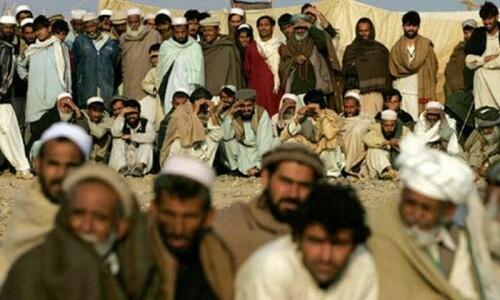ISLAMABAD: The government has formally asked the National Electric Power Regulatory Authority (Nepra) to reduce for three months (April-June 2025) the electricity rates by Rs1.71 per unit for all consumers across the country.
The government has decided to increase the tariff differential subsidy (TDS) for electricity consumers from April to June FY2025. The per-unit additional TDS for all consumers of ex-Wapda distribution companies (Discos) and K-Electric (except lifeline domestic), is estimated at Rs1.71/kwh, said a brief power division request to the regulator.
It said the federal cabinet had taken a decision on March 26, 2025 as part of government’s efforts to reduce consumer-end tariff and improve demand. The regulator has a called a public hearing on April 4 to complete the formality for applicability of Rs1.71 per unit lower tariff with effect from April 1 to June 30, 2025. The government would notify the new rates soon after the regulator completes public hearing.
The power division said Nepra had determined the national average rate for FY2024-25 at Rs35.50 per unit. The government had notified the national average tariff of Rs32.99 per unit from October 2024 onwards with a Rs2.51 per unit TDS out of taxpayer money. After fresh notification, the base national tariff would come down to Rs31.20 per unit for three months, excluding almost a dozen taxes, duties and surcharges.
New rates to be notified only after April 4 public hearing by the power regulator
It was widely reported in the media through official leaks that the prime minister would announce a Rs8 per unit reduction in electricity rates in his speech to the nation on March 23. The prime minister, however, did not announce any such relief package in his Pakistan Day speech, pending announcement of staff-level agreement (SLA) with the International Monetary Fund (IMF) at the time.
The IMF later announced the SLA earlier this week. The federal cabinet then cleared the transfer of Rs10 per litre additional petroleum levy on petrol and diesel imposed on March 15 for Rs1.71 per unit reduction for consumers as promised by the prime minister.
The Rs10 per litre levy translates to about Rs15bn or about Rs170-180bn annual revenue, depending on actual sales. However, this will have to pass through the regulatory process, although IMF has not yet formally cleared this as well.
The prime minister office (PMO) had itself announced on March 15 that the PM had decided to maintain the petroleum prices at the existing level against up to Rs13 per litre worked out by the oil regulator and petroleum division with a promise to transfer its financial impact to the electricity consumers.
The petroleum levy on petrol and diesel was thus increased by Rs10 to a maximum of Rs70 permissible under the Finance Act, 2025, to divert the revenues towards maximising relief in power tariffs.
Published in Dawn, March 29th, 2025
















































